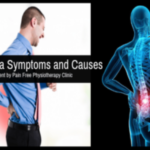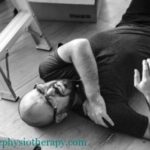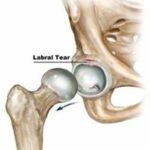How Physiotherapy Can Help Women Recover After Childbirth
Pregnancy complications and symptoms will vary from woman to woman. You will need to be psychologically and physically strong before you give birth as well as afterward. Pre and post-pregnancy complications can be greatly reduced by performing certain physical exercises.
Postpartum depression is common with new mothers, and you may have issues losing weight after you have given birth. You may also have pelvic, bladder, and lower back issues that may persist after giving birth.
Here, we will focus on how physiotherapy can help women recover after childbirth.
The Importance of Physiotherapy
Giving birth to a baby is no child’s play. Many precautions must be taken both before and after the child is born. After you have given birth, you must reduce the risk of complications that may arise in the future.
Physiotherapy is designed to help new mothers regain their confidence and high quality of life. Almost every mother will deal with some issues after having a child, whether mental or physical, and physiotherapy directly addresses these issues.
Bladder Problems and Pelvic Pain
After delivery, you can expect pelvic pain and some bladder issues. Your pelvic floor muscles may not be working as intended. You may leak urine when you cough or sneeze. You may experience severe pain in your pelvic area, and you may also have some bowel issues as well.
You may also notice an increased urge to urinate, and you may also feel a dull pain near your tailbone and lower back. Physiotherapy will help restore full functionality to your pelvic floor muscles while strengthening them in the process.
Biofeedback therapy may also help, as it involves the use of electrodes to measure your muscle activity. Incontinence and stress will be reduced when you work closely with a licensed and trained physiotherapist to fix your bladder and pelvic problems.
Pain in Abdominal Muscles
The stomach region of some women may become weaker during pregnancy. The muscles may even separate during and after pregnancy. As the uterus grows due to the pregnancy, the parallel, long muscles in the stomach may separate.
Common symptoms of abdominal separation include lower back pain and a noticeable gap between the two bands of abdominal muscles.
You may even notice a strange bulge in your stomach that is shaped like a canoe. You should perform abdominal exercises for a minimum of six weeks after you have given birth. By doing so, you will regain any strength that you have lost and will also recover your pre-pregnancy body.
Your physiotherapist will help you optimize the function of your abdominal muscles. They will also teach you how to exercise safely. Abdominal muscle pain will be treated effectively when you follow their pelvic floor exercises.
Breathing Trouble
Pulmonary issues are fairly common after a woman has given birth. Some women may even become permanent pulmonary patients, which should be avoided if possible.
Failure to follow the proper breathing exercises and provide the right treatments may lead to long-lasting breathing problems.
If you decide to get pregnant a second time, then breathing issues will carry over and cause more complications during your second pregnancy.
There are coughing, huffing, and deep breathing exercises that you should practice to prevent such pulmonary problems from developing. You will be given pillows during your exercise regime so that you will be comfortable throughout the workout.
Aerobic exercises may also be provided so that you can improve your breathing as well.
Postpartum Depression
Depression is one of the most common and most serious issues that many people will deal with after birth. Some common symptoms to look for include severe mood swings and a depressed mood.
You may notice that you cannot stop crying and may have trouble bonding with your newborn infant. Other red flags to look for include withdrawing from friends and family, as well as binge eating food.
Some women may have little to no appetite after having their child, which can lead to malnourishment and anemia. Some women may have trouble getting out of bed, while others may have difficulty sleeping.
Depression affects people differently, but the symptoms are almost always debilitating and harmful. A loss of energy or overwhelming fatigue may also be experienced by some women who suffer from postpartum depression.
Your post-pregnancy pain will be relieved after you have worked closely with your therapist. They will help you feel less anxious and more relaxed, which may help with your depression. They will help you relieve tension and stress and may reduce any fear you may be dealing with
Exercise is designed to reduce or relieve the many symptoms of fear and anxiety, including rapid breathing and a racing heart.
Physical exercises have many antidepressant effects that do not have any unpleasant side effects like many drugs. Your physiotherapist will try to re-establish the positive behaviors that you enjoyed before you had your baby.
There is Help for Post-Pregnancy Complications
Many post-pregnancy complications may arise after you have had a baby. Incontinence, irritable bowel syndrome, pelvic pain, and frequent urination are just some of the possible complications.
You may have trouble losing the baby weight you put on while pregnant, while other women may suffer from postpartum depression, insomnia, loss of appetite, or excessive hunger.
Chronic fatigue syndrome and potentially serious breathing problems may arise if the woman is not treated properly post-birth.
Postpartum physiotherapy is designed to alleviate or prevent such complications from transpiring.
Your therapist will evaluate your medical history and current state and formulate a customized exercise regime that will lower stress, strengthen your muscles, and help you lose weight quickly to resume your pre-pregnancy lifestyle.
They will help alleviate any pain you are in and will refer you to a doctor for additional testing if they feel that an underlying medical condition may be causing your symptoms.











